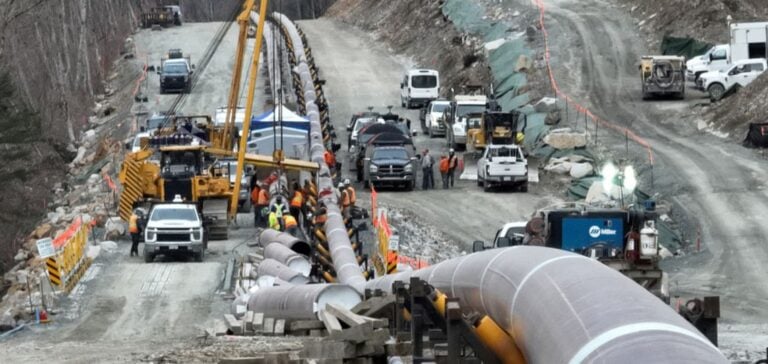Rongsheng Petrochemical Co Ltd, a major player in the Chinese petrochemical industry, has purchased its first cargo of Canadian crude oil through the recently extended Trans Mountain Pipeline (TMX). This acquisition is part of a broader strategy to diversify China’s energy supply sources, as Asian demand for Canadian oil grows. The Trans Mountain pipeline, after years of regulatory delays and construction challenges, recently began commercial operations, increasing crude oil transport capacity by 590,000 barrels per day. This expansion gives Canadian producers better access to markets on the West Coast of the United States and in Asia.
Transaction details
Rongsheng acquired 500,000 barrels of Access Western Blend (AWB) crude oil, a diluted bitumen blend produced by Canadian Natural Resources and MEG Energy. The cargo will be delivered to the Rongsheng refinery in Zhoushan in August. AWB is known for its heaviness and high acid content, posing refining challenges for some Asian facilities. At the same time, Rongsheng also purchased 2 million barrels of Abu Dhabi’s Upper Zakum crude oil via Aramco Trading, as well as 2 million barrels of West African crude, including Congo’s Djeno and Angola’s Mostarda grades. These transactions demonstrate Rongsheng’s aggressive strategy to secure diversified supplies.
Impact and outlook
Rongsheng’s first purchase of Canadian oil via TMX represents a significant development in the oil trade between Canada and China. Traders and shippers are closely monitoring pipeline flows and loadings from the Westridge Marine Terminal, as TMX’s expansion offers increased opportunities for Canadian producers to capture higher premiums on Asian markets. However, the compatibility of Canadian oil with Asian refineries remains a concern. Because of their high sulfur and acid content, Canadian grades are not easily refined by all Asian plants, limiting their appeal to certain refiners.
Analysis of economic implications
Rongsheng’s decision to invest in Canadian crude could further boost Canadian exports to Asia, prompting other refiners to explore similar options. This trend could also encourage Canadian producers to improve the quality of their products to meet the requirements of Asian refineries. In conclusion, this acquisition marks an important step forward in energy relations between Canada and China. The extension of the Trans Mountain pipeline, by facilitating access to Asian markets, could redefine commercial dynamics and open up new prospects for both parties.





















